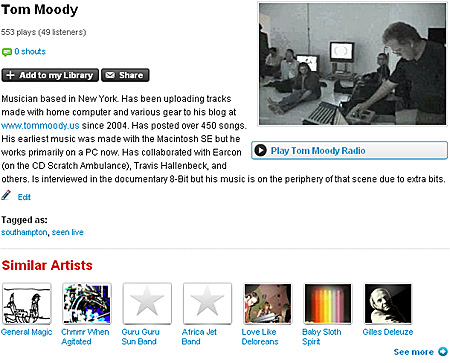"LML Mini" [mp3 removed]
Concise rock'n'raver. This could be fleshed out with tracks for cymbals and bass (and more length) but it's working OK for me in sketch form. (Some of the drum hits are sliced samples from a '60s biker film and the beat is a famous psychedelic trio's riff.)

